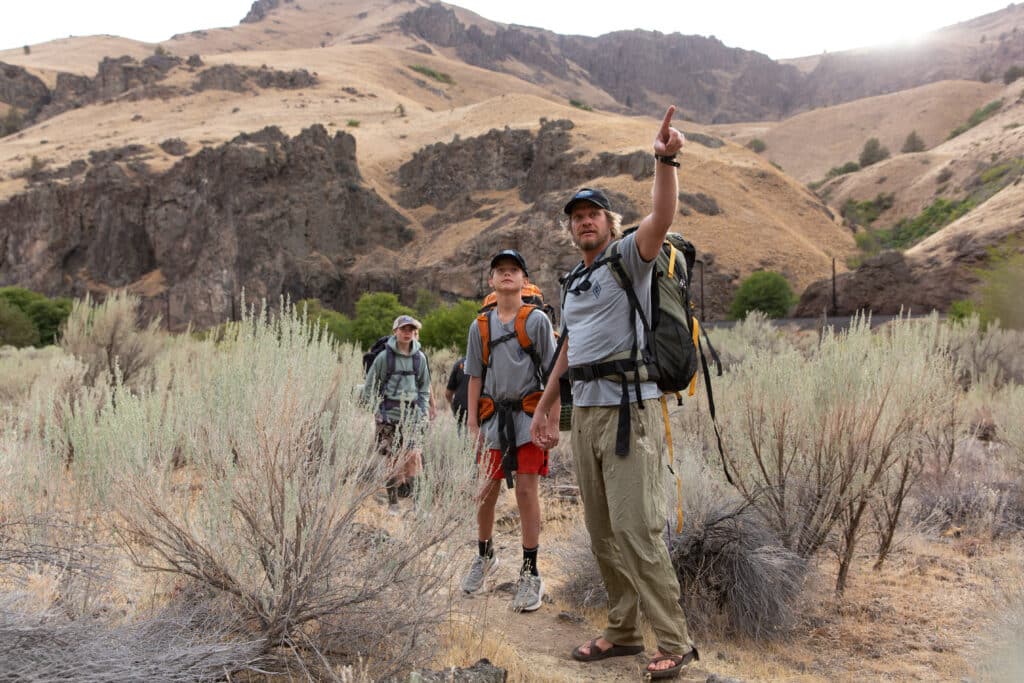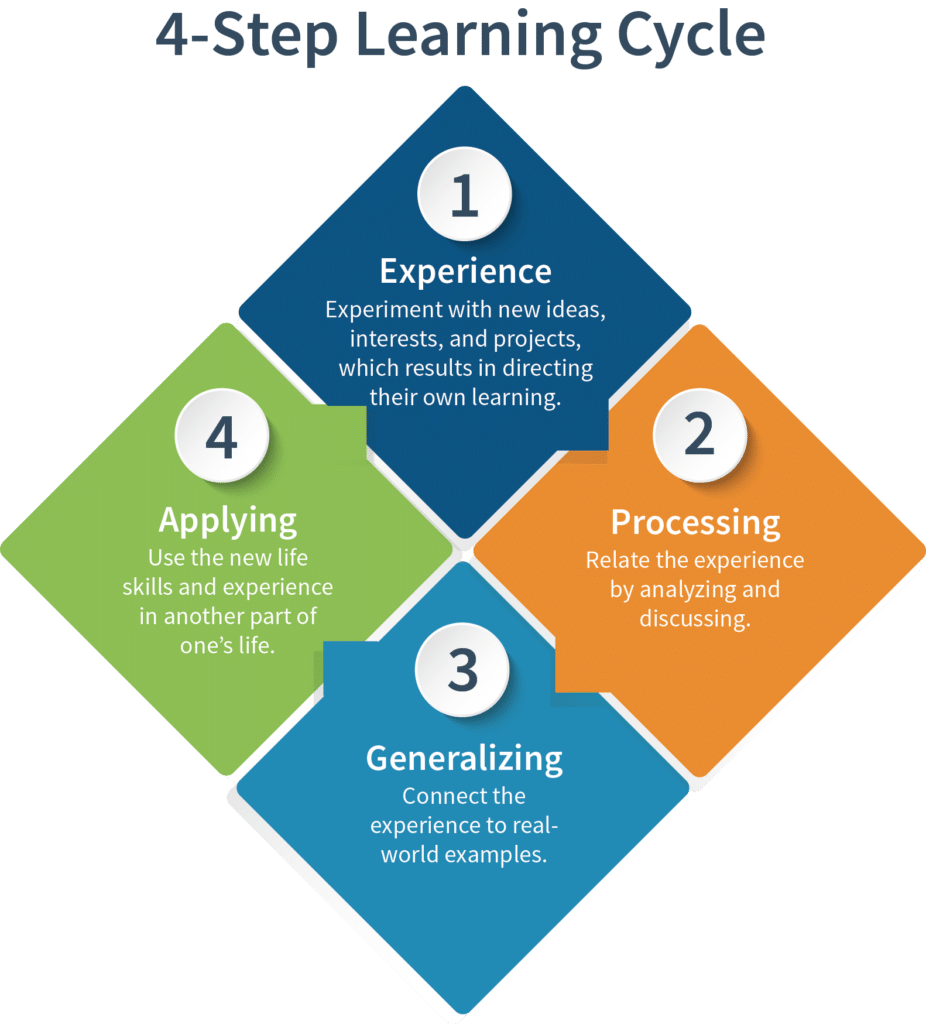Leadership Skills & Personal Development are Backcountry Bonuses at NCOAE
November 30, 2023
Editor’s Note: Today’s post is the 250th since we launched our blog in December of 2013. And what better way to mark the occasion than by publishing a post about the efficacy of outdoor and adventure-based experiential education. Thank you to everyone who has been along for the ride so far. From our writers and editors to our readers and those who choose to share our posts, we appreciate the opportunity to share our expertise and experience and we look forward to continuing to do so for many years to come.
Leadership Skills, Personal Development are Backcountry Bonuses at NCOAE
By, Elizabeth Shirley, WFR, NCOAE Director of Outdoor Programming & Education
For those of us who work in adventure-based and experiential outdoor education, it’s pretty much a given that backcountry, expedition-style experiences can set students up for success in life, sometimes well beyond the expedition itself. Whether these wilderness experiences include the mountains of Alaska, the rivers of the Pacific Northwest, or the coast of North Carolina, outdoor education expeditions offer an opportunity for meaningful life experiences.
In fact, backcountry courses planned and expertly guided by The National Center for Outdoor & Adventure Education (NCOAE) are intentionally designed expeditions, with a focus on leadership and personal development that goes hand in hand with learning or improving technical outdoor skills and environmental science.

The term “empower” has become a trite and ineffective word in today’s world, much like a father telling his son, “I empower you to mow the lawn.” However, there are numerous occasions during an NCOAE wilderness expedition where students are offered a variety of opportunities to step into leadership roles while in the field.
These assignments include serving as a Leader of the Day — a student charged with making sure the group stays on task and on the trail, utilizing a map and compass. The Cook of the Day guides the assigned expedition members in the preparation of meals and the subsequent cleanup. And the Gear Crew helps the group set up camp, position bear hangs, collect water, and more. Students also participate in a variety of hands-on leadership lessons, focused on topics such as decision making, communication skills, values identification, leadership styles, and more.
Participating in backcountry expeditions that are fueled by the foundational concepts associated with experiential education help students not only develop new skills, but learn how to accept challenges, overcome obstacles, identify goals and objectives, and increase their confidence, thus returning home with the tools required to successfully apply the lessons learned.
And don’t just take our word for it. Research shows that backcountry expeditions work to create life-changing events, enabling students and other course participants to broaden their perspectives, meet and collaborate with different types of people, increase self-awareness, and help clarify the type of life they wish to pursue.
Positive results from such leadership expeditions include:
- Connecting with others
- Fulfilling potential
- Developing outdoor knowledge and skills
- Knowing thyself
- Sharing the experience
- Impact on academic and professional life
- Connecting with nature and the world
Here at NCOAE, our field instructors are intentional about creating engaging learning environments where education occurs through unique, facilitated experiences, supported by thoughtful individual and group reflection on what occurred and how it was experienced. In fact, all of our programs are guided by the NCOAE Educational Framework, which includes a keen focus on David A. Kolb’s Experiential Learning Model.
Kolb’s model is based on the notion that learning is a process involving four distinct stages, and that students may have a preferred learning style that aligns with one or more of these stages. The four stages in the Experiential Learning Model are:
- Concrete Experience: This is the stage where students encounter a new experience or engage in a new activity. It involves hands-on experience and is often the starting point of the learning cycle. At NCOAE, this can be the backcountry experience itself or any of the challenges, assignments, obstacles, etc., that are inherently involved in being a member of group that’s required to work together to make the most of their wilderness expedition.
- Reflective Observation: After the concrete experience, participants are facilitated in sessions that offer opportunities to reflect on what happened during the experience. During reflection, students are encouraged to consider their observations and experiences from different perspectives, and to start to understand their implications.
- Abstract Conceptualization: In this stage, course participants are encouraged to generalize and form theories or concepts based on their reflections and observations. The idea is to make sense of the experience by connecting it to existing knowledge or creating new theoretical frameworks.
- Active Experimentation: The final stage in Kolb’s Experiential Learning Model involves applying the concepts and theories derived from the reflective observation and abstract conceptualization to new situations. This final step aims to complete the learning cycle by allowing students and course participants to test their understanding in practical settings.
By creating and facilitating wilderness-based experiences that foster personal growth, professional development, and acquisition or improvement of technical outdoor and urban or wilderness medicine skills, NCOAE continues to create a meaningful learning experience for students on each of its courses.
= = = = = = = = =
About the Author: Elizabeth Shirley, WFR, is the Director of Outdoor Programming & Education at The National Center for Outdoor & Adventure Education (NCOAE).
TALK TO US
Have any further questions about our courses, what you’ll learn, or what else to expect? Contact us, we’re here to help!

Leave a comment